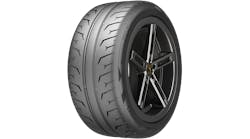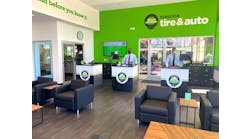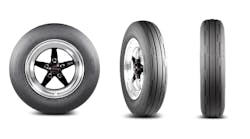This MTD exclusive was written by William O’Flaherty, a director with Matrix Capital Markets Group Inc.
Including the current, COVID-19-based economic downturn, the United States has experienced three recessions in the past two decades, including the post-2001 dot com bubble burst and the Great Recession of 2008. All three have provided merger and acquisition takeaways that can be useful to independent tire dealers who are managing through the present crisis.
Buy new or keep-and-fix?
The automotive aftermarket tends to enjoy recession-resistant and arguably counter-cyclical demand. While all businesses confront unique challenges during recessionary periods, the automotive aftermarket, including tire dealerships, often benefits from consumers more closely managing their expenses during economic downturns.
Both over the long-term and particularly in times of hardship, prospective new car buyers continue to repair existing vehicles for a fraction of the cost of buying new. In addition to the personal financial situation of each consumer, the new car decision-making process can also be influenced by several external factors. Chief among them are dealer incentives, including cash rebates and advantageous financing terms.
During most of the 2001 recession, the automotive aftermarket grew at a steady rate. While the depth of this recession was fairly shallow, the long-term theme of consumers repairing versus replacing vehicles during downturns held true.
In the face of tepid demand for new vehicles, in September 2001, new car dealers began introducing a wealth of incentives to consumers. Prior to these types of incentives being offered, new vehicle sales had stalled significantly.
Unsurprisingly, this has been the case for nearly every major recessionary period. While vehicles are a necessity for many, upgrading or buying a new vehicle is viewed as a luxury purchase that is usually deferred during periods of economic hardship. Instead, consumers turn to maintaining and repairing their existing vehicles. Later, as economic concerns begin to subside and maintained growth becomes realistic, typically a pent-up burst of dealer sales occurs.
Unlike the 2001 recession, in which consumer spending was not as significantly impacted, the 2008 economic downturn had parallel declines in both consumer spending and private business investments. And new vehicle sales decreased consistently for an extended period of 18 months.
Automotive aftermarket revenues, specifically auto parts retail, have generally been resilient throughout the recessionary periods, even increasing during some of the most severe months. However, the shift in consumer sentiment and purchasing trends at the tail-end of the 2008 recession caused a significant uptick in new vehicle sales, and auto parts retail revenue declined sharply. The most significant declines were in performance parts and accessories, which can typically be delayed.
Business valuations
A recurring market theme, and one that becomes pronounced in periods of economic uncertainty, is the increase in valuation multiples for large, publicly traded automotive aftermarket businesses versus the broader S&P 500 Index, which either decreases or stays flat.
Valuation multiples measure the market value of a business relative to a core financial metric of that business. The higher the valuation multiple, the more “valuable” that business is relative to the underlying financial metric.
If we assume that, as a whole, these publicly traded automotive aftermarket businesses represent a sub-segment of top-tier operators in their market, then the appreciation of relative value should also extend to exceptional privately held enterprises.
This phenomenon is indicative of investor interest in the automotive aftermarket, and the recognition of the growth opportunities that exist in the market both during and after a recession.
It should also be noted that this is not a universal principal across the industry. However, successful operators can expect significant interest on the part of investors and capital providers both during and in the wake of recessions.
Performance of the automotive aftermarket index in 2008 largely mirrored the effects seen in 2001. As the recession progressed and stretched over an 18-month period, well-run automotive aftermarket companies benefited due to consumers’ reliance on older vehicles that required routine maintenance. However, some companies were forced to consolidate through layoffs and store closures, and even file for bankruptcy.
This disparity of operating performance and valuation for individual businesses within the same marketplace creates an environment well-suited for consolidation.
The impact of COVID-19
To date, the COVID-19 pandemic has had a fairly adverse impact on the automotive aftermarket as a whole, and will have lasting impacts on the industry for quite some time.
The nature of the COVID-led economic downturn is extremely unique as social distancing has significantly impacted both consumer and business behavior in unprecedented ways. Vehicle miles traveled decreased dramatically due to the temporary closure of non-essential businesses and widespread stay-at-home orders. This initially dampened the need for both routine maintenance work and tire purchases.
However, the consumer automotive aftermarket retail experience is likely to remain somewhat positive in the near-term, as the deferred maintenance and ongoing needs of consumers will be met with a refreshed business infrastructure that will be organized around safe, but limited, interpersonal interactions.
Our expectation is that these combined factors will cause aftermarket retail sales and repair expenses to lag the traditional recovery curve somewhat. But long-term, we anticipate the automotive aftermarket to be more robust than when we entered the current economic downturn.
What’s next?
Signs indicate that the economic disruption caused by COVID-19 will mirror the impact of the 2008 Great Recession more so than the 2001 financial crisis. Many economic contributing factors will influence consumers to continue to maintain older vehicles rather than purchase newer models. Moreover, the heightened societal awareness of shared, enclosed spaces could depress the enthusiasm for these consumers to pursue public transportation alternatives, at least for the short-term.
The pent-up demand for vehicle repair work is expected to release into the marketplace as society eases back into relative normalcy.
Operational considerations will inevitably begin to manifest themselves in the form of business valuations. In the near-term, we do expect the valuation gap between the automotive aftermarket and other sectors to widen, just as it did during prior downturns.
Given the expected magnitude and duration of the pending recession, the value appreciation for the automotive aftermarket index will more closely resemble that of the 2008 Great Recession. This dynamic will likely drive a number of privately held businesses, including tire dealerships, to consider liquidity options and therefore create consolidation opportunities for larger industry players.
What does all of this mean for private business owners in the auto aftermarket? First, it’s still an opportune time to consider a sale. There will consistently be buyers or investors that are willing to explore transactions with businesses in aftermarket sales and repair.
The middle and latter stages of a recession are also good times to consider reinforcing management and other employee ranks. While labor markets today are soft across many retail and service sectors, we believe employment demand in the aftermarket will recover quickly. COVID-led unemployment won’t be the only driver of turnover, as the fear of changing retail/service experiences and poor employee management will cause many operators to potentially lose good managers and mid-level employees and flood the market with potential candidates. These workers will be looking for economic upside and stability in future, long-term employment.
As the result of every market disruption, winners and losers emerge. There will unfortunately be some fall-out for select operators, but history has proven that growth-oriented, exceptionally managed businesses, including tire dealerships, have an opportunity to thrive as a result of recessions.
Most importantly, tire dealers should absorb the lessons learned from prior recessions to inform their decision-making in both addressing current market conditions and preparing for the potential growth period that could soon follow.
William O’Flaherty is a director with Matrix Capital Markets Group Inc. and is actively involved in the firm’s Automotive Group. He has more than a decade of auto industry M&A experience. For more information, contact [email protected].



